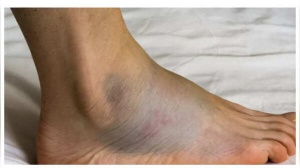Dengue fever, a mosquito-borne viral infection primarily transmitted by the Aedes aegypti mosquito, poses a significant public health challenge in India. The infection, active during daylight hours, can manifest in varying degrees of severity, with potentially fatal outcomes, particularly for individuals with compromised immune systems. With India accounting for a substantial proportion of the estimated 100–400 million dengue infections worldwide, the development of an effective vaccine is of paramount importance. Encouragingly, India's first dengue vaccine is nearing completion of its phase 3 clinical trials, offering a beacon of hope in the fight against this pervasive disease.

Dengue fever, transmitted by Aedes mosquitoes, triggers a range of debilitating symptoms, including high fever, severe headaches, intense joint and muscle pain, and a potentially dangerous reduction in blood platelet count. In severe instances, dengue can lead to hemorrhage, organ failure, and even mortality. Children and the elderly are particularly vulnerable to the most severe complications of the disease.
The development of a safe and effective dengue vaccine has presented significant challenges to scientists for years. A primary obstacle lies in the existence of four distinct dengue virus serotypes. An effective vaccine must confer protection against all four serotypes to provide comprehensive immunity. While some vaccines developed in other countries have yielded mixed results, their widespread adoption has been limited.
The Serum Institute of India (SII) is at the forefront of India's efforts to combat dengue, spearheading the development of the country's first dengue vaccine. The vaccine, known as "TetraVax-DV," is meticulously designed to provide protection against all four dengue virus serotypes. Similar to other vaccines, TetraVax-DV employs a weakened form of the virus to stimulate the body's immune system, enabling it to effectively combat dengue infection. Importantly, as it does not contain a live virus, it cannot induce the disease itself.
Before a vaccine can be approved for widespread use, it must undergo a series of rigorous testing phases:
Phase 3 represents the most critical stage, as it demonstrates the vaccine's ability to prevent dengue within the broader community.
Phase 3 trials for India's dengue vaccine commenced in 2023, spanning over 20 locations across the nation, encompassing both urban and rural settings. The trial aims to enroll more than 10,000 volunteers, including children and adults from diverse backgrounds. Current indications suggest that enrollment is nearing completion, with preliminary results showing promise.

India bears a disproportionately high burden of dengue cases globally. Seasonal outbreaks strain healthcare facilities and inflict suffering on countless families. A safe and effective vaccine has the potential to:
Beyond vaccination efforts, it remains crucial to maintain preventative measures against dengue, including protection from mosquito bites (through the use of repellents and appropriate clothing), ensuring proper drainage, and eliminating potential breeding grounds for mosquitoes in open water sources.
The Indian Council of Medical Research (ICMR) and Panacea Biotec
Newer articles
Older articles
 Emma Raducanu Shuts Down Carlos Alcaraz Dating Rumors with Playful Wimbledon Press Conference Quip
Emma Raducanu Shuts Down Carlos Alcaraz Dating Rumors with Playful Wimbledon Press Conference Quip
 Rishabh Pant's "Revolutionary" Cricket Style Hailed by Greg Chappell
Rishabh Pant's "Revolutionary" Cricket Style Hailed by Greg Chappell
 5 Silent Signals of Prediabetes: Recognize the Warning Signs Before a Blood Test
5 Silent Signals of Prediabetes: Recognize the Warning Signs Before a Blood Test
 Wimbledon 2025: Broadcast Guide for India and US Viewers - Dates, Prize Money, and Streaming Details
Wimbledon 2025: Broadcast Guide for India and US Viewers - Dates, Prize Money, and Streaming Details
 Smith Targets Second Test Return After Innovative New York Rehab
Smith Targets Second Test Return After Innovative New York Rehab
 Gavaskar Calls for Kuldeep Yadav's Inclusion in Second Test Amid Bumrah Fitness Doubts, Cites Birmingham Pitch Advantage
Gavaskar Calls for Kuldeep Yadav's Inclusion in Second Test Amid Bumrah Fitness Doubts, Cites Birmingham Pitch Advantage
 Skin Signals: 7 Unexpected Signs of Heart Disease You Should Know
Skin Signals: 7 Unexpected Signs of Heart Disease You Should Know
 India Poised for Dengue Breakthrough as Vaccine Candidate Nears Trial Completion
India Poised for Dengue Breakthrough as Vaccine Candidate Nears Trial Completion
 Science-Backed Steps to a Healthier Heart: 5 Simple Habits for a Stronger You
Science-Backed Steps to a Healthier Heart: 5 Simple Habits for a Stronger You
 FIFA Club World Cup 2025: Upsets, Messi Magic, and 2026 World Cup Concerns Emerge From Group Stage
FIFA Club World Cup 2025: Upsets, Messi Magic, and 2026 World Cup Concerns Emerge From Group Stage